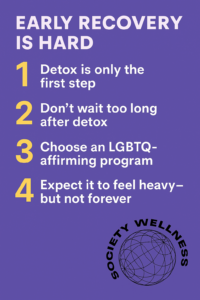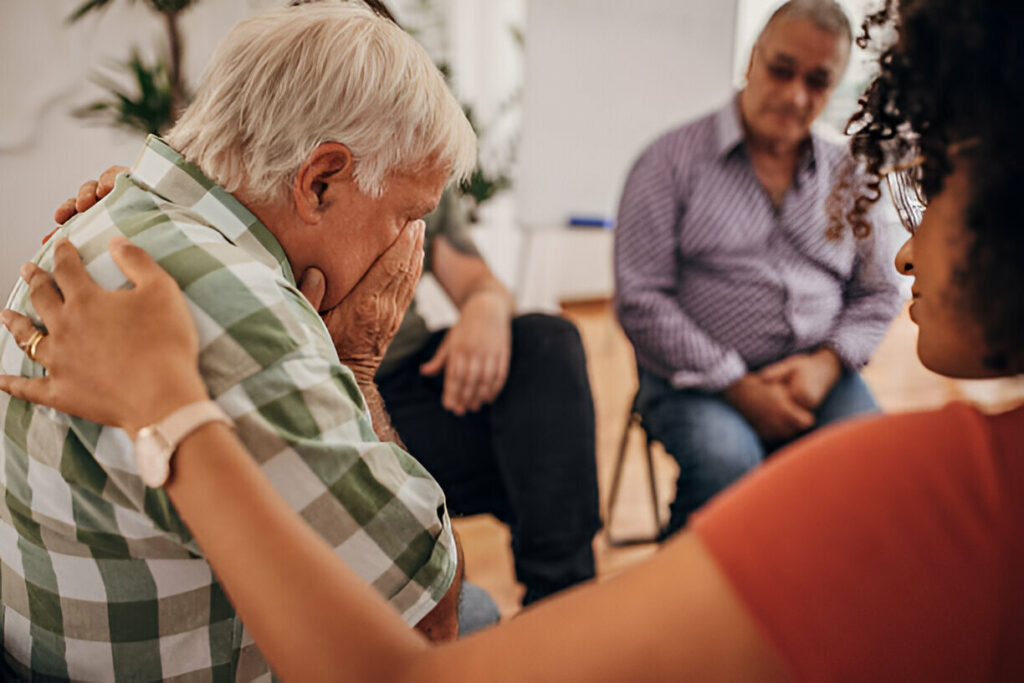You survived detox. That’s not small. That’s everything.
Maybe you shook through nights alone in a hospital room. Maybe you cried in silence, wondering who you’d be without the thing that once felt like your only escape. Maybe you still don’t believe this will work—but you’re here, reading this.
That tells me something: you’re not done. And even if everything feels raw, messy, and uncertain, the part of you that’s still looking for help? That part is still alive.
Early recovery is hard. Especially when the people around you don’t get what it means to be both newly sober and LGBTQ+. You need support—but not just any support. You need a space where you don’t have to explain yourself just to be seen. A space where sobriety and identity are part of the same conversation.
That’s where an LGBTQ intensive outpatient program (IOP) in Boston can help. If you’re wondering how to take that next step—without losing what you just fought for—this is your guide.
1. Understand That Detox Is Only the First Step
Detox clears the body. That’s important. But it doesn’t heal the pain underneath.
Addiction doesn’t start with a substance—it starts with something deeper. A story. A wound. A moment when coping became surviving and surviving became using.
When detox ends, your mind, heart, and nervous system are still carrying everything you numbed. If you don’t have structure in those early days, it’s incredibly easy to slip—fast.
That’s why IOP exists. It offers:
- 3–5 days per week of therapy, community, and skill-building
- Structured support without full hospitalization
- A safe space to stay accountable, get real, and stay connected
IOP is where you learn how to live again. Not just clean—but alive.
2. Don’t Wait Too Long After Detox
There’s a window after detox—a short one—where your body feels clearer but your emotions haven’t caught up. You may think, Maybe I’m okay now. Maybe I don’t need more help.
That’s a dangerous thought. Not because you’re lying to yourself, but because withdrawal relief can feel like clarity—and clarity can make you forget how quickly it can all slip.
If you’re still in detox, talk to your provider about a discharge plan. Ask to be referred to an LGBTQ IOP like the one at Society Wellness in Boston.
If you’re already out, call today. Don’t wait for the urge to use—or the loneliness—to make the decision for you.
3. Choose an LGBTQ-Affirming Program on Purpose
Not every treatment space gets it.
Some don’t know how to talk about gender identity. Some think your sexuality is “irrelevant.” Some use language that erases who you are—or worse, blames your identity for your addiction.
You’ve come too far to end up in a place that makes you shrink again.
At Society Wellness, our LGBTQ intensive outpatient program in Boston is built by and for LGBTQ people. That means:
- No explaining your pronouns to every provider
- No minimizing your trauma because it doesn’t “fit the mold”
- No pretending your identity is a side note
You are allowed to show up as your full self here—and we’ll meet you with full respect, every step of the way.
4. Expect Early Recovery to Feel Heavy—But Know It Won’t Last Forever
No one talks enough about the emotional wave that hits after detox.
You might feel like crying without knowing why. You might feel numb, or agitated, or like your skin doesn’t fit. You might want to crawl back into old patterns—not because you’re weak, but because your body remembers what used to feel like relief.
This is when structure matters most.
In IOP, you won’t be left alone with all those feelings. You’ll:
- Learn emotional regulation tools
- Unpack grief, shame, and identity in a safe group
- Be witnessed by people who get it
I used to think my sadness would swallow me. Instead, I found people who helped me name it. That changed everything.

5. Let Community Be the Difference
Recovery isn’t just about stopping something. It’s about starting something else.
The people you meet in IOP might become the first people you’ve ever felt safe being honest with. They might share stories that sound like yours. They might cry when you talk—not because they pity you, but because they understand.
When you’re LGBTQ+, finding people who see both your addiction and your identity can feel impossible. That’s why community matters.
Because connection doesn’t just keep you sober—it helps you stay human.
Frequently Asked Questions About LGBTQ IOP
What’s the difference between IOP and inpatient or PHP?
- Inpatient: 24/7 residential care, usually for detox or severe mental health crises
- PHP (Partial Hospitalization): Daytime treatment 5 days a week, more clinical structure
- IOP (Intensive Outpatient): 3–5 days a week for a few hours per day, more flexibility
IOP is a strong fit for people transitioning from detox or stepping down from PHP. It offers structure and community—without full-time hospitalization.
Do I have to be completely sober to start IOP?
Not necessarily. Many people start IOP while navigating relapse or trying to stabilize. What matters is willingness and honesty. Our team can help you determine if IOP is the right level of care right now.
How long does IOP usually last?
It varies. Some people attend for 4–6 weeks, others stay longer depending on need and progress. We’ll help create a plan that feels sustainable for you.
Will I have to talk about being LGBTQ?
Only if and when you want to. While the space is affirming and identity-aware, you’re in control of what you share. No one will pressure you to talk before you’re ready.
Can I work or go to school during IOP?
Yes. IOP is designed with flexibility in mind. Many clients work part-time or attend classes while participating. We’ll help build a schedule that supports your life and your recovery.
Still Standing After Detox? You’re Ready for What’s Next.
Detox is a doorway—not a destination. If you’ve made it this far, you’re ready to take the next step into something stronger.
At Society Wellness, our LGBTQ intensive outpatient program in Boston is built to meet you where you are: early, shaky, hopeful, and still healing.
Call us today at (888) 964-8116 or Contact Us.
You don’t have to feel sure. You just have to keep going.

